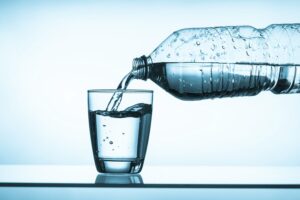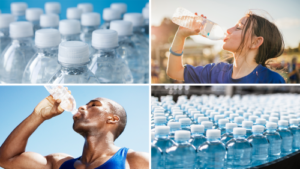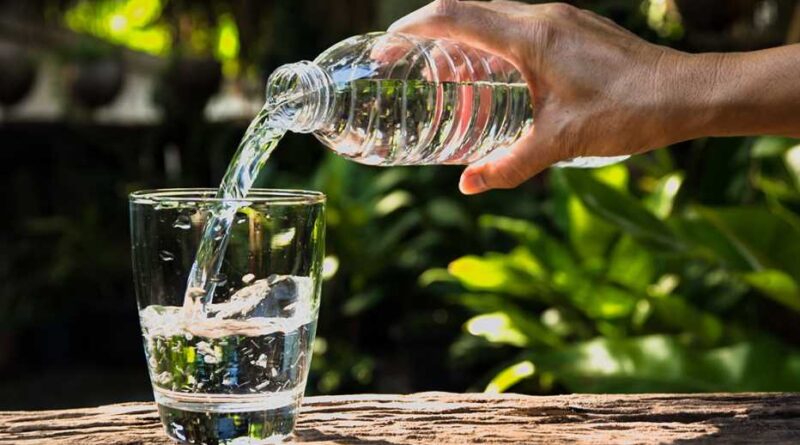Hydration and weight loss: How much water do you really need?
Contents
Hydration and weight loss: How much water do you really need?
Surely you’ve heard that drinking water can help you lose weight. You may have seen advice recommending drinking 8 glasses a day or drinking water before meals to lose weight.

But how much water do you really need to drink to see results? And what is the real connection between hydration and weight loss?
There is a lot of misinformation floating around. From conflicting recommendations to trendy detox cleanses, it’s easy to get confused.
You may wonder whether you’re drinking too much, too little, or missing out on the benefits of water altogether.
Cut through the noise and get the facts so you can find the right amount of water for your weight loss.
You’ll learn why hydration is important, how to determine your personal water needs, and discover practical tips to help you stay hydrated while losing weight.
The Role of Vitamins and Minerals in the Daily Diet
Learn about weight loss supplements: 5 essential notes
The science behind hydration and weight loss
Water is important for the body to function properly, but how does it specifically relate to weight loss? Here’s a closer look at how hydration can affect your weight management efforts:
Topical diet suppression:
Drinking water before meals can help you feel fuller, causing you to eat less and consume fewer calories.
AIDS digestion:
Proper hydration ensures your digestive system functions smoothly. Water helps break down formula more effectively and aids in nutrient absorption.
It also keeps your digestive tract lubricated, fertilized, and promotes regular peristalsis.
When you become dehydrated, your body will try to conserve water by draining water from the connection, which can lead to slow digestion and digestion.
Drinking enough water can help your digestive system function properly, allowing your body to process and eliminate waste effectively.
Other ways besides water to help you lose weight:
- Fat metabolism: Water is essential for lipolysis, which is the breakdown of fats. In particular, it helps produce glycerol and fatty acids by hydrolyzing triglycerides.
- Exercise performance: Staying hydrated helps improve exercise performance. When your body is hydrated, you can exercise more effectively and burn more calories.
- Reduce calories: By choosing water instead of sugary drinks, you can reduce your calorie intake. Swapping a 12-ounce soda for a glass of water can save you more than 140 calories at a time.
Overall, water plays an important role in supporting your weight loss efforts, from revving up your metabolism to helping you avoid unnecessary snacking. Staying hydrated is a small change that can lead to significant results over time.
Determine how much water you need
So how much water should you drink? The answer is not the same for everyone and each person’s water needs depend on many factors. Here’s a closer look at how to find your optimal level of hydration.

General instructions:
You may have heard the “8×8 rule,” which recommends drinking eight 8-ounce glasses of water per day (about 2 liters).
It’s a simple guideline to remember and can serve as a good starting point. However, it is not a one-size-fits-all approach and each individual’s needs can vary widely.
Factors affecting water demand:
- Age and weight: Larger people often need more water than smaller people because they have a higher body mass and metabolic rate. Similarly, older adults may have lower water needs due to changes in body composition and metabolism.
- Activity level: If you are physically active, you will need extra water to replace fluids lost through sweat. Whether you’re working out at the gym, playing sports or just leading an active lifestyle, staying hydrated is important for optimal performance and recovery.
- Climate: Hot and humid environments can lead to more dehydration, so if you’re living in or visiting a warm climate, you’ll need to increase your water intake. Altitude can also increase fluid loss due to increased respiratory rates.
- Health conditions: Certain health conditions can affect hydration needs. For example, fever, vomiting or diarrhea can lead to rapid dehydration, requiring increased water intake. People with kidney problems or those taking specific medications may also need to adjust their intake.
- Pregnancy and breastfeeding: Pregnant and breastfeeding women need additional fluids to support the needs of their body and baby.
Find balance:
Remember that water is not the only source of hydration. Other water-rich drinks and foods like fruits and vegetables also contribute to your daily fluid intake.
Pay attention to your body’s signals and adjust your intake based on how you feel. Signs of dehydration include dry mouth, dark urine and headaches, while overhydration can cause nausea, bloating and confusion.
Tips for monitoring your hydration needs:
- Urine color: Light-colored urine often indicates good hydration, while dark urine can be a sign of dehydration.
- Thirst: Don’t wait until it’s dry to drink. Thirst is a late sign of dehydration.
- Performance: If you feel sluggish or have trouble concentrating, it could be a sign that you need to drink more water.
Ultimately, finding the right balance for your body is important. Pay attention to your water intake and tailor it to your lifestyle, ensuring that hydration becomes an easy part of your daily routine.
Practical tips for staying hydrated
Are you having trouble getting your daily water intake? You’re not alone. Sometimes it’s easy to forget to drink enough water, especially with a busy schedule.
But with some creative strategies, you can make drinking water a habit and ensure you always meet your needs. Here are some practical tips to help you stay hydrated:
- Taste it up:
Plain water can sometimes feel bland, but a little natural flavor can make it more enjoyable to drink.
Infuse fruits and herbs: Add lemon slices, cucumbers or strawberries to water for a refreshing flavor. Herbs such as mint, basil or rosemary can also add unique flavor.
Citrus boost: Squeeze a little fresh lemon, orange or grapefruit into the water.
Flavor combinations: Try different combinations like mint and lemon, cucumber and lemon, or strawberry and basil.
- Foods containing a lot of water:
Don’t just drink water, eat water too! Many fruits and vegetables have high water content, making them great snacks to hydrate the body.
Cucumbers: More than 95% water, cucumbers are one of the most hydrating foods you can eat.
Watermelon: Appropriately named, watermelon is more than 90% water and is naturally sweet.
Oranges and grapefruits: Citrus fruits are succulent, hydrating and packed with vitamins.
Celery: With a water content of over 95%, celery is a crunchy and refreshing snack.
Tomatoes: Perfect in salads, tomatoes are about 94% water.
Special considerations
When it comes to hydration, different groups may have unique needs based on their activity level, age or health status such as:
- Athletes and active individuals
- Elderly people and children
- Elderly
- Children
- Health condition
- Pregnancy and breastfeeding
Water plays an important role in weight loss but it is not a miracle drug. Finding your personal water intake point will support your weight loss goals while helping you feel more energized and healthier.
Combining proper hydration with balanced nutrition, regular exercise and adequate sleep is the key to successful weight loss.

